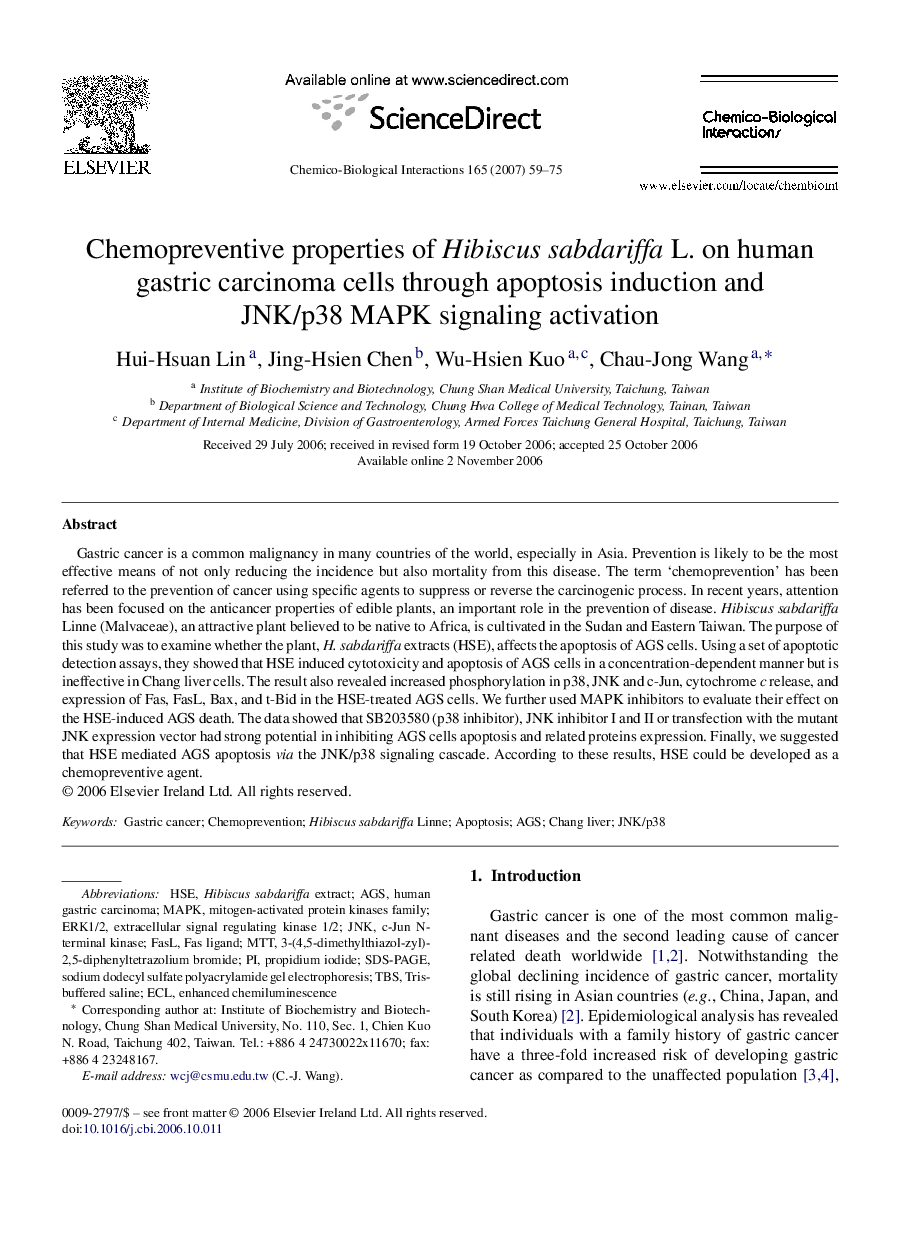| Article ID | Journal | Published Year | Pages | File Type |
|---|---|---|---|---|
| 2582180 | Chemico-Biological Interactions | 2007 | 17 Pages |
Gastric cancer is a common malignancy in many countries of the world, especially in Asia. Prevention is likely to be the most effective means of not only reducing the incidence but also mortality from this disease. The term ‘chemoprevention’ has been referred to the prevention of cancer using specific agents to suppress or reverse the carcinogenic process. In recent years, attention has been focused on the anticancer properties of edible plants, an important role in the prevention of disease. Hibiscus sabdariffa Linne (Malvaceae), an attractive plant believed to be native to Africa, is cultivated in the Sudan and Eastern Taiwan. The purpose of this study was to examine whether the plant, H. sabdariffa extracts (HSE), affects the apoptosis of AGS cells. Using a set of apoptotic detection assays, they showed that HSE induced cytotoxicity and apoptosis of AGS cells in a concentration-dependent manner but is ineffective in Chang liver cells. The result also revealed increased phosphorylation in p38, JNK and c-Jun, cytochrome c release, and expression of Fas, FasL, Bax, and t-Bid in the HSE-treated AGS cells. We further used MAPK inhibitors to evaluate their effect on the HSE-induced AGS death. The data showed that SB203580 (p38 inhibitor), JNK inhibitor I and II or transfection with the mutant JNK expression vector had strong potential in inhibiting AGS cells apoptosis and related proteins expression. Finally, we suggested that HSE mediated AGS apoptosis via the JNK/p38 signaling cascade. According to these results, HSE could be developed as a chemopreventive agent.
